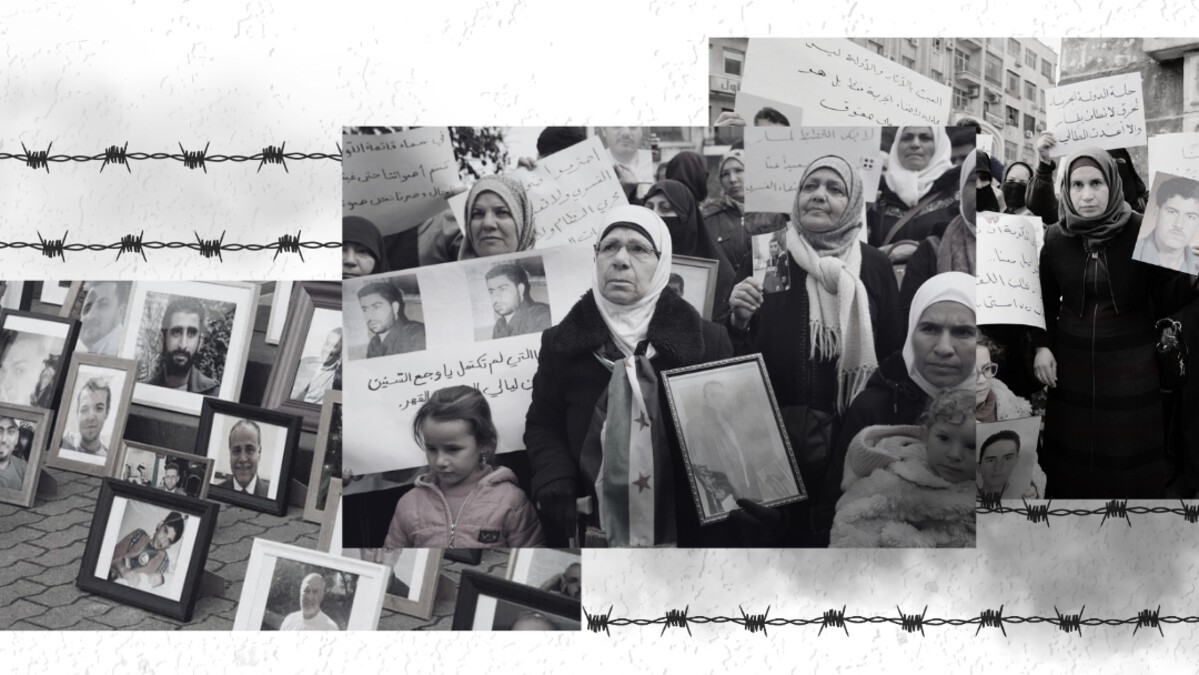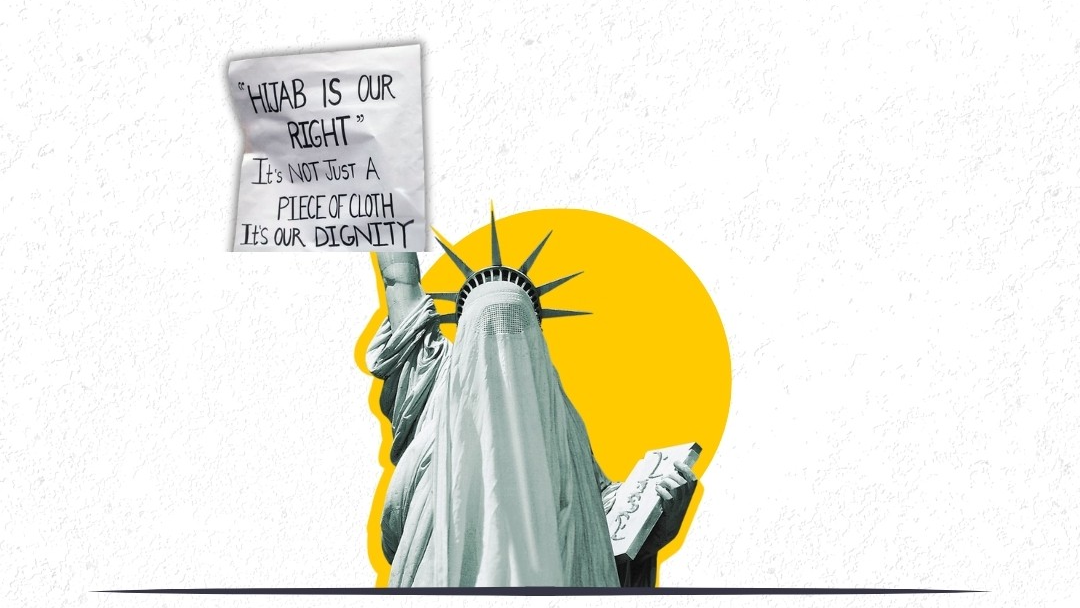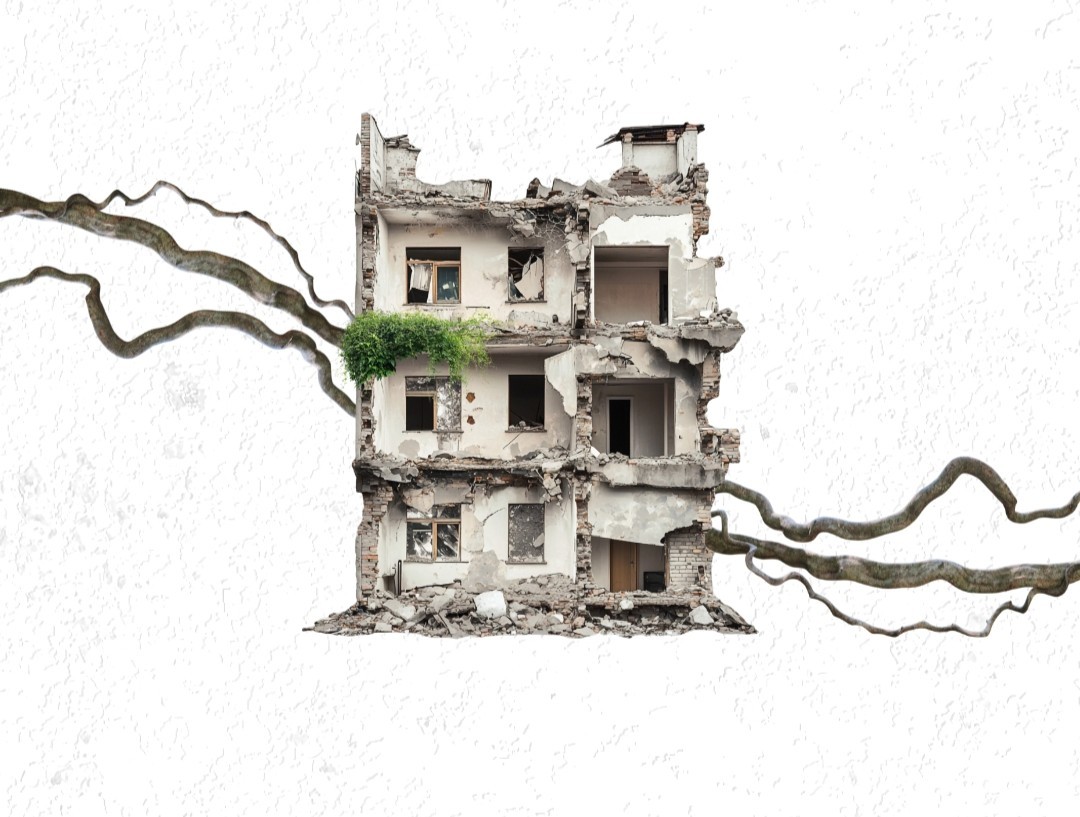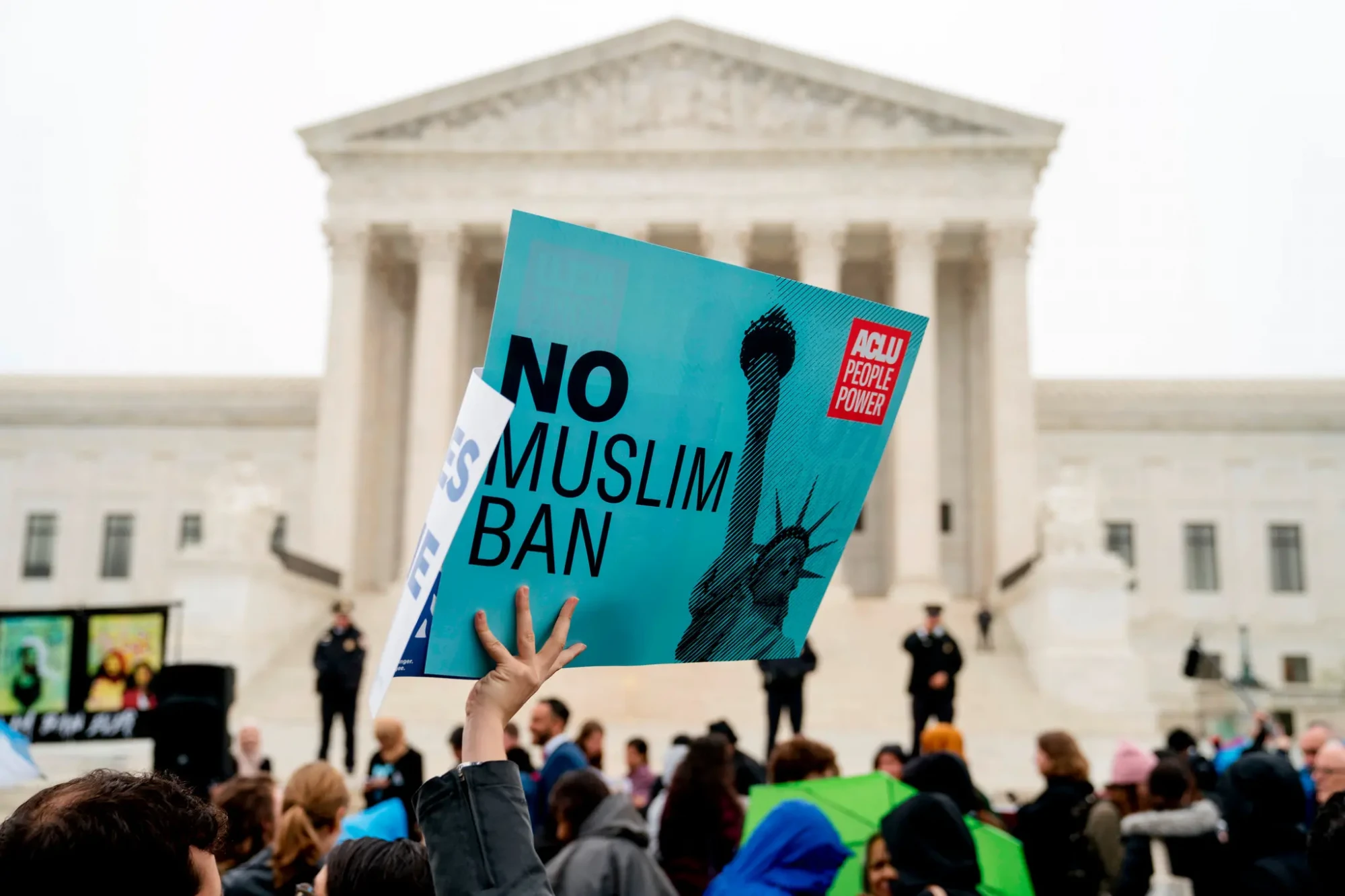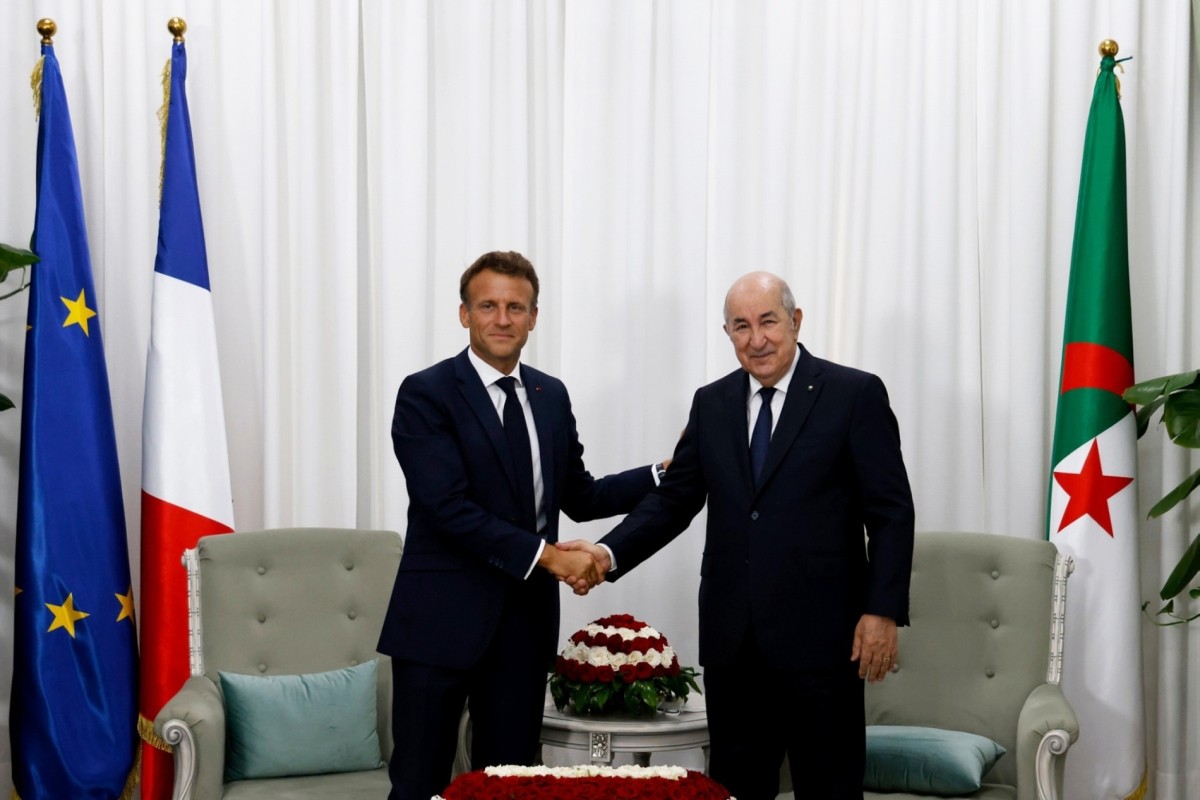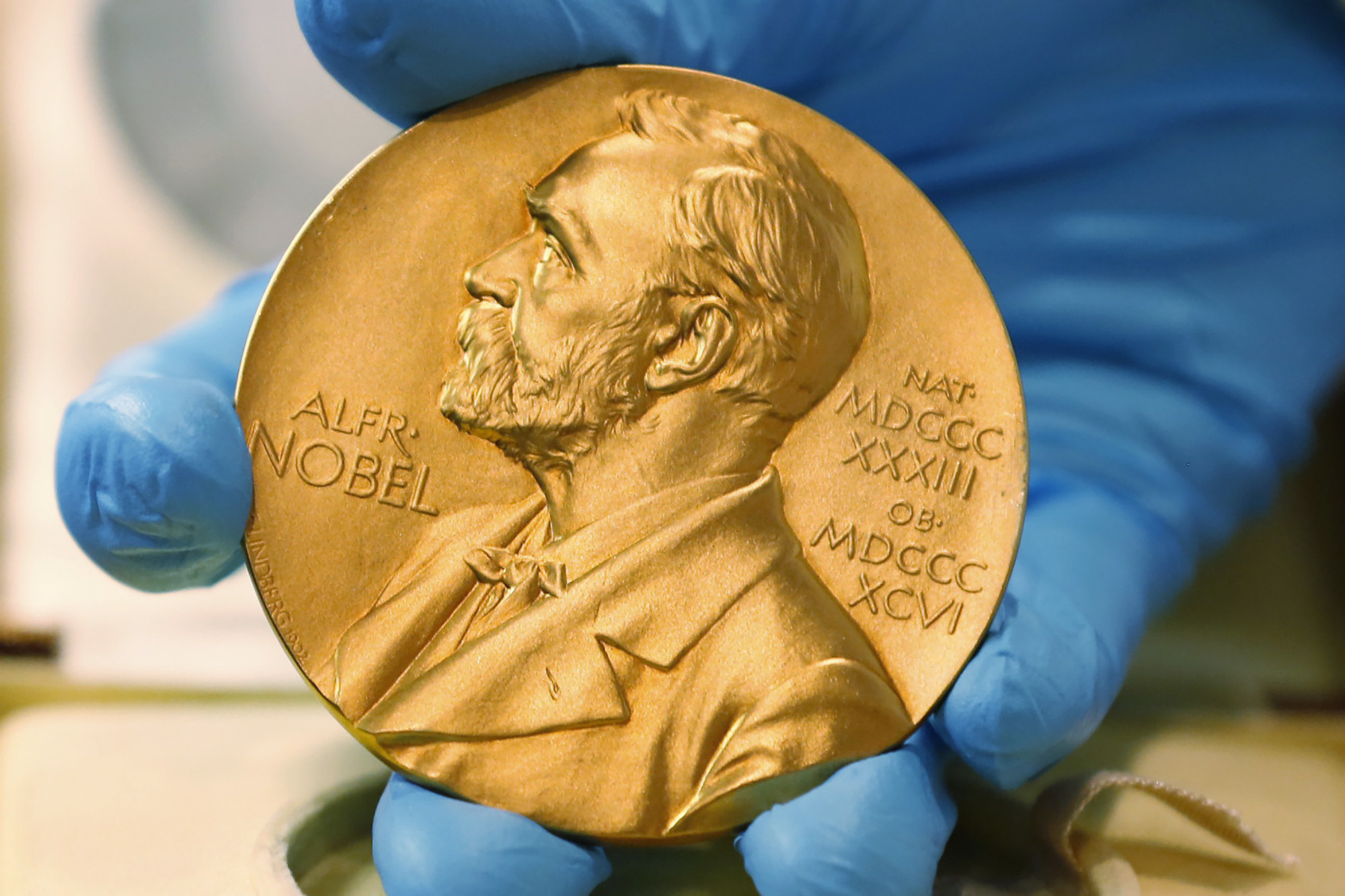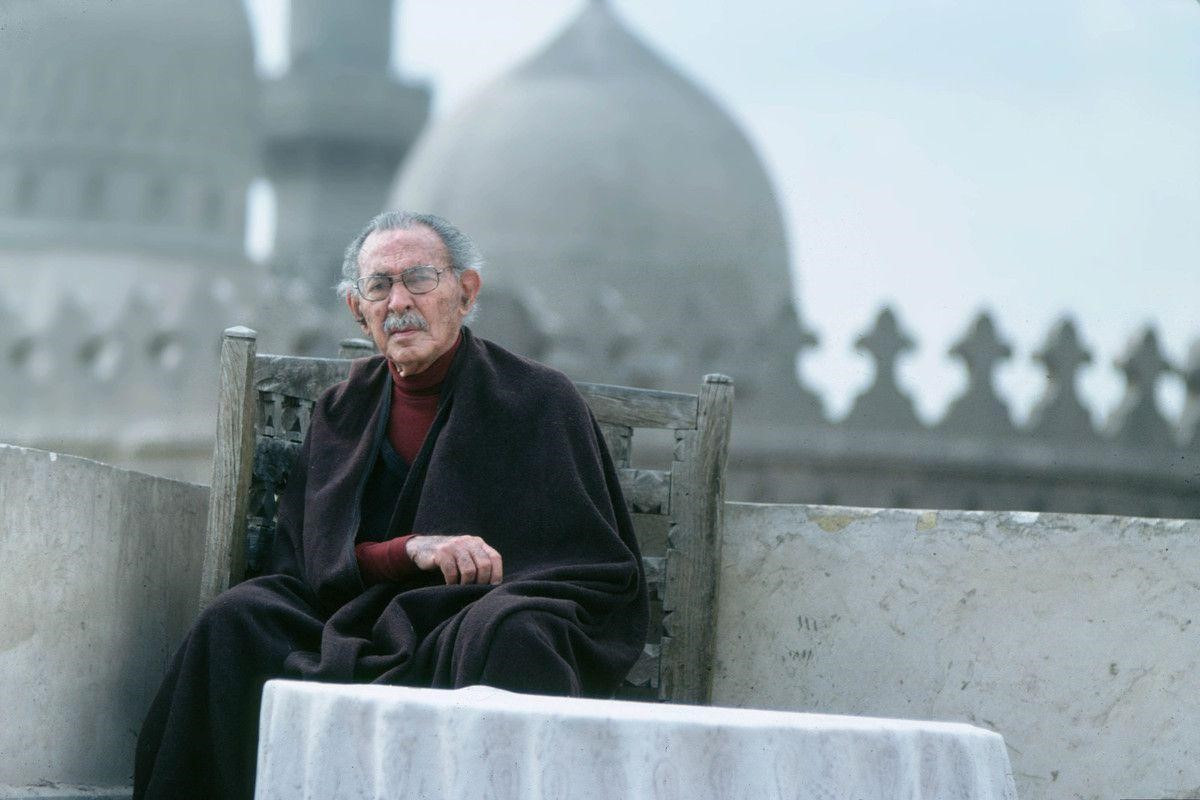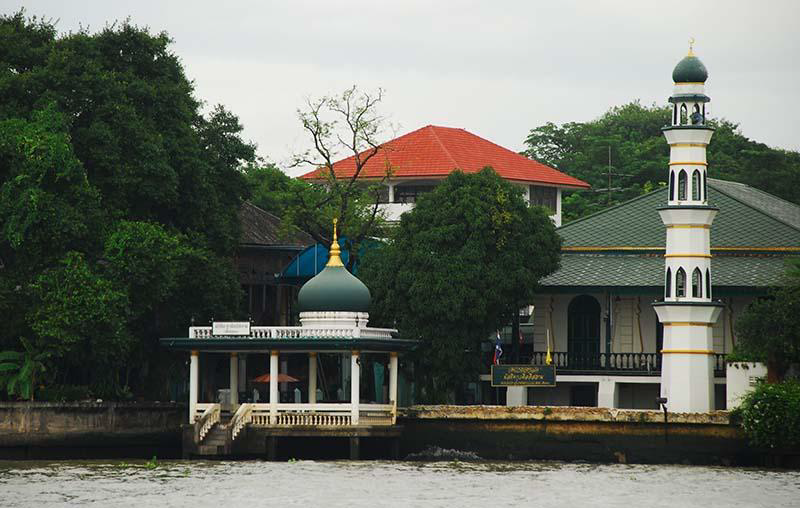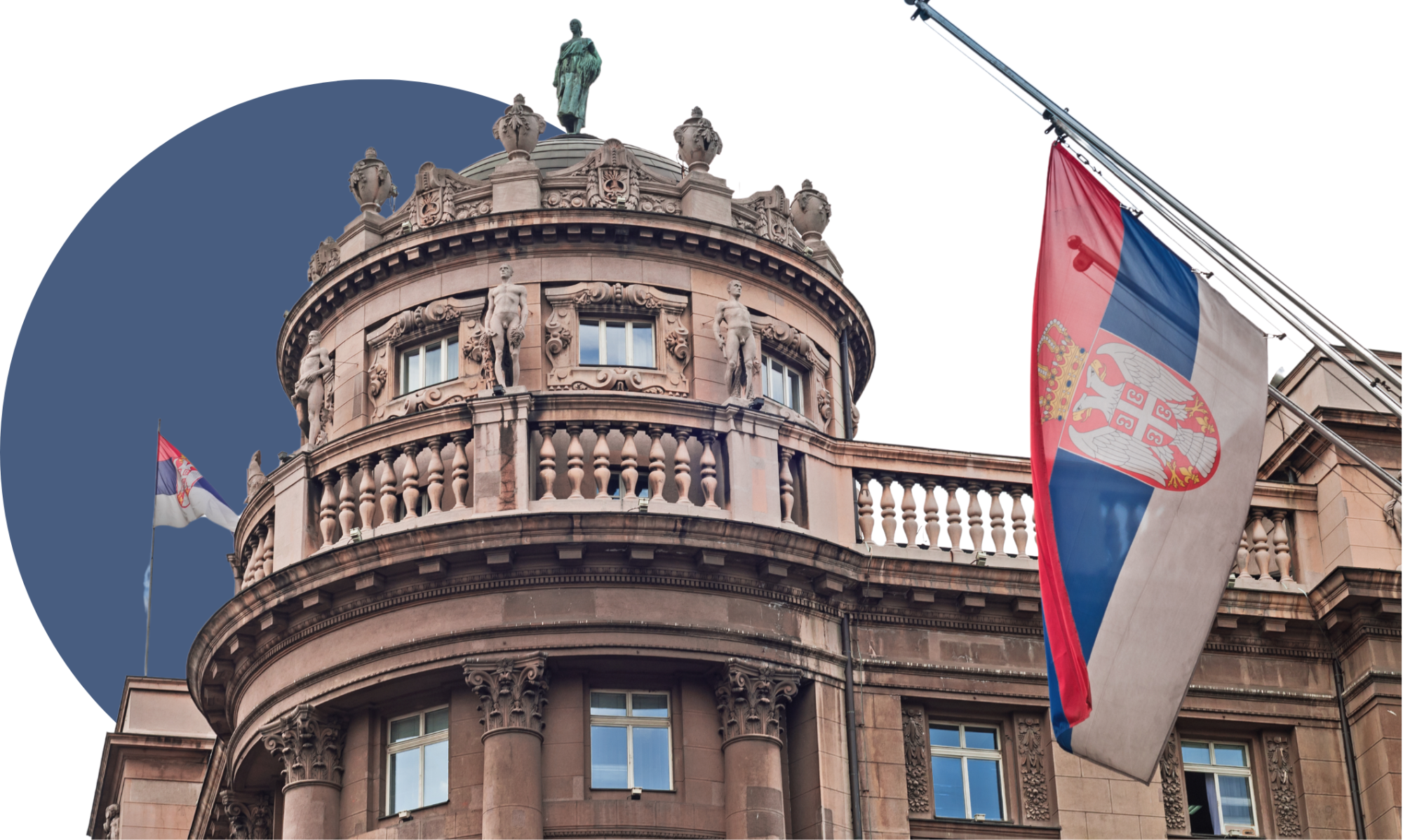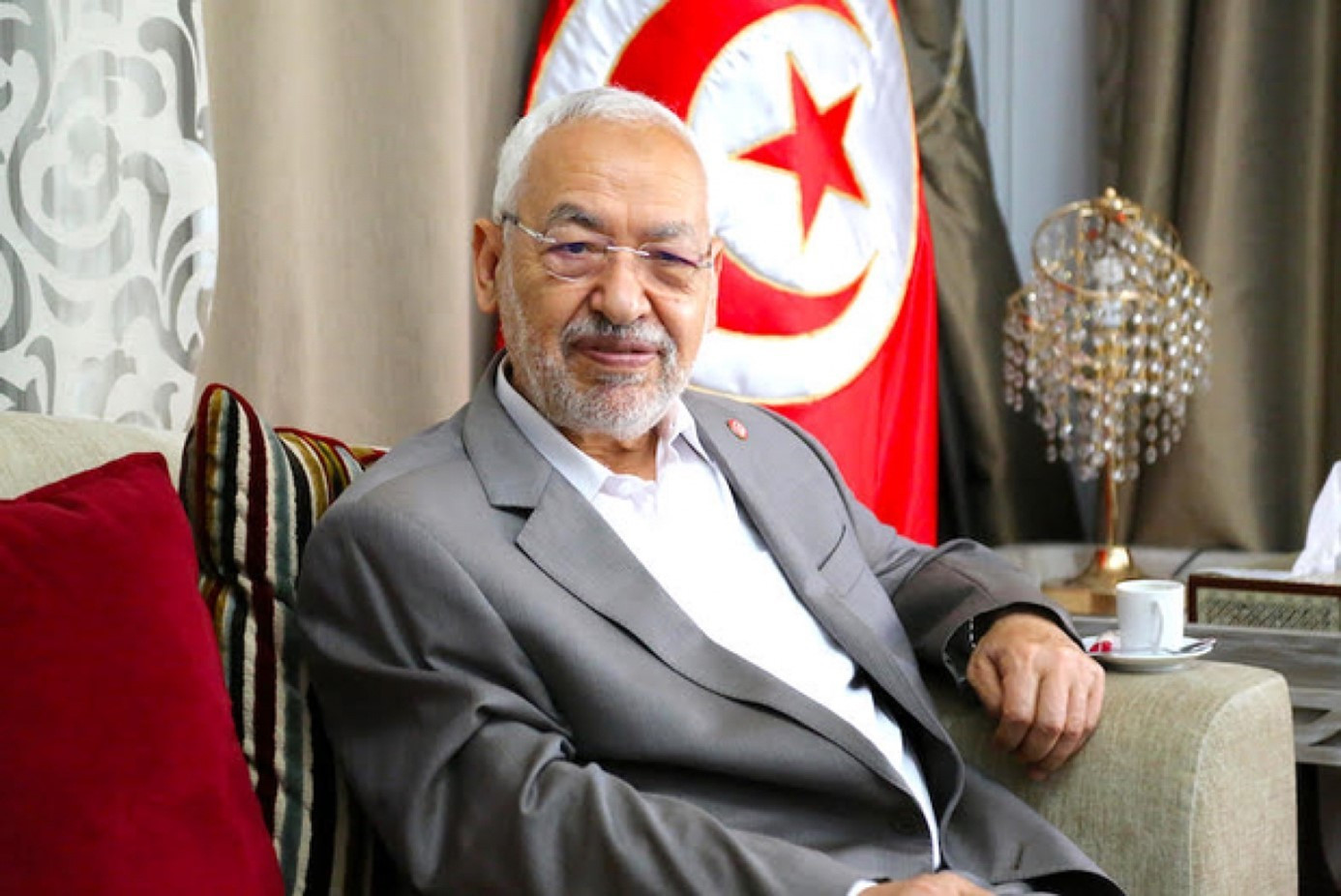
Rachid Ghannouchi: An Intellectual and Political Figure
Rachid Ghannouchi, who holds a unique position in context of his Islamist thought structure, is one of the leading intellectual and political figures of both Tunisian society and the Muslim world. Rachid Ghannouchi was not satisfied with mere intellectual contribution to contemporary Islamic ideas with his works. Therefore he actively got involved in both political and social movements to transfer his thoughts into practice. Rashid Ghannouchi, known as the leader of Tunisia’s Islamist movement Ennahda, is also known as a “Muslim democrat”. The Ennahda Movement, which differs from other Islamic movements in many aspects within the Islamic tradition, is a movement built on Rachid Ghannouchi’s ideas and shaped and developed by Ghannouchi’s emotion and thought realm. It is not possible to think of the Ennahda Movement, which played a critical role in Tunisia’s political history, separately from Rashid Ghannouchi. In this article, the life of Ghannouchi, who gives importance to practice as well as theory, will be analyzed in the light of his world of thought and actions.
An Islamist in Tunisia
Rachid Ghannouchi, who was born in 1941 as a child of a religious family in the village of Ghannouchi in the Gabes province of Tunisia, completed his primary and secondary education in this region and started at Zeytune Madrasa to specialize in the field of Islamic law. However, Ghannouchi, who was not satisfied with his education in Zeytune Madrasa and wanted to specialize in different fields, later went to Cairo University for agricultural education. At that time, he adopted Nasserist ideas, an outlook of Arab nationalism. Ghannouchi, who went to Syria illegally due to the pressures in Egypt, studied philosophy at Damascus University and joined the Nasser Socialist Union to rebuild the Arab League in this process (Gökçen, n.d.). The basis of Rashid Ghannouchi’s adoption of Nasserist Arab nationalist ideas was to take an oppositional stance against Bourguiba, who waged war on Islamic and cultural values with the aiming of westernization in Tunisia. At a time when everyone who was an Arab nationalist is against Bourguiba, Rashid Ghannouchi was also at this pole (Geisser, 2011). Ghannouchi’s first breaking point, away from Nasserist Arab nationalism, was his six-month European trip, which included Turkey. Ghannouchi, who later returned to Damascus to continue his philosophy education, went through a period of deep questioning about Arab nationalism, witnessing the debates between nationalists and Islamists. Rashid Ghannouchi left the Nasserist party in 1967 and at the same period began to read the significant Islamist thinkers of the time, Hasan al-Banna, Sayyid Qutb, Muhammad Iqbal, and Abul A’la Maududi. Rashid Ghannouchi, who was deeply influenced by the ideas of these thinkers, concluded that Islam has a global view of society. In this regard, he went through a great transformation in his personal life and brought Islam back to the center of his life. Between 1966 and 1968, he solidified his way of thinking by making extensive readings on Islam. After graduating from Damascus University, he continued his education at the Sorbonne University, Department of Educational Sciences in Paris. At the same time, he became a member of the Ghannouchi Tabligh Community. Ghannouchi, an active member of the congregation, carried out preaching activities for Muslims who migrated from North Africa to France. Ghannouchi, who was also the general secretary of the French Islamic Students Association (AEIF) and the French Islamic Students Association founded by Muhammad Hamidullah during these years, had a dynamic time both individually and socially (Geisser, 2011).
He returned to Tunisia at the end of the 1960s and abruptly started to give lectures in the Association for the Protection of the Qur’an, which was established by the Religious Administration. Ghannouchi found that, particularly under the Bourguiba regime, the youth in Tunisia showed a Westernized materialist tendency and moved away from religious and cultural values. On the other hand, Ghannouchi stated that Islam is an alternative to a social and political system that people need (Jackson, 2006, pp. 231-235).
The Islamic Wind is Blowing in Tunisia
When he returned to Tunisia, Rached Ghannouchi, who saw that there was a great moral collapse and deterioration in the country and that it had broken away from the Arab-Muslim identity, decided to work as a philosophy teacher in his country. Together with names such as Abdulfettah Moro, Hamadi an-Nayfar, and Salahaddin al-Curshi, he started classes in mosques. People with a wide variety of political views attended these lecture circles. In addition to Islamic sciences, ideologies such as marxism, and existentialism were also discussed in the lessons. These names, who worked at the Association for the Preservation of the Qur’an, made it their mission to apprise people that Islam is a way of life and a global system beyond being a tradition (Geisser, 2011; Guide et al., 2014). According to Ghannouchi, the spread of Islam is possible but its starts from the individual. Ghannouchi has embraced a working method that concentrates on the individual first, the family second, and then the society. Ghannouchi stated that they adopted the view that the individual and society should be reformed before the state and their main goal in the first period was not to acquire power (Geisser, 2011).
The Founding declaration of the Islamic Orientation Movement, whose frameworks were formed with the study circles in the mosques, stated that the movement aimed to bring an Islamic identity to Tunisia, to re-establish the Islamic idea and morality in the society, to save the society from all kinds of cultural and political external domination, to establish pluralism and to ensure social justice. (Guide et al., 2014, p. 56). The movement’s demands for officially becoming a political party were rejected and many members of the movement were arrested by the Bourguiba regime. During these years, Gannouchi was sentenced to prison twice, once for 11 years and the other for a life sentence, and stayed in prison for many years. After Ben Ali’s bloodless coup against the Bourguiba government, the pressure on the movement eased a little and the imprisoned members were released. The movement, which changed its name to the Ennahda Party in 1989, achieved great success by getting more than 15% of the votes in the elections it participated in with independent candidates. The Ben Ali regime, disturbed by the success of Ennahda, began to suppress the movement. In this process, Ghannouchi went to London, and many Ennahda members went abroad. Returning to his country after the revolution in 2011, Ghannouchi became the first party in the elections held after the Arab spring (Gökçen, n.d.).
A Muslim Democrat
Gannouchi, who has been in contact with many different views since his childhood and received education in different disciplines, has a broad and deep horizon. His books like Public Freedoms in the Islamic State, Civil Rights in the Islamic State, Secularism and Civil Society, The Qur’an, and Women Between Life are among the pivotal works of contemporary Islamic thought. The establishment of the Ennahda Movement to hamper morality corruption and alienation from religious and cultural identity in Tunisia; is based on the aim of ensuring that Islamic values dominate both individual and social life. Rached Ghannouchi, who considers that the change will start from the individual, has been actively involved in the political life of Tunisia over time, nad has not been indifferent to the political and social issues. However, Ghannouchi’s main emphasis was that the priority of Islamist movements should not be to gain power, and the gigantic achievement was to make people and their leaders love Islam. In this regard, Ghannouchi recommended that Islamist movements aim for robust civil society and democracy (Abu Rabi, 2004, p. 207; Ghannouchi, 2004).
Rashid Ghannouchi’s ideas, especially about democracy, modernity, and the West, differ from those of mainstream Islamist thinkers. According to Gannnouchi, democracy is not a philosophy or an ideology, instead, a tool to control the power. Ghannouchi does not find any incompatibility between Islamic principles such as ijtihad, ijma, allegiance (Bayʿah), maslaha, and shura and the principles of democracy. The principles of democracy that guarantee the sovereignty of the nation and prevent despotic governments do not contradict Islam. Ghannouchi explains the democratic regime as both a form and content reign. Rights such as equality, election, separation of powers, political diversity, and freedom of expression are guaranteed in the democratic regime, shaped by the principle that sovereignty belongs to the people. The content of the democratic regime is the “confession of the value to the human being”. In this way, it protects human dignity and gets people involved in administrative affairs in the public sphere. In a democratic regime, the freedom of the rulers is hidden in their will to elect the ruled. Thus, the democratic regime prevents oppression and tyranny (Gannuşi, 2012, pp. 113-114). Although Ghannouchi accepts the problems in the functioning of democracy, he thinks that a model based on the principles of democracy should be applied (Esposito & Voll, 2001, p. 115).
In addition, Ghannouchi’s relationship with the idea of the West and modernity differs from the views of mainstream Islamists. Evaluating Western modernity as a natural result of a political and economic process in the West and an idea, Ghannouchi defends modernity, which means absolute intellectual freedom, scientific and technological progress, and support for democratic ideals (Abu Rabi, 2004, p. 209). However, Ghannouchi’s red line in his idea of establishing a relationship with the West and modernity is to avoid being politically, economically, and culturally dependent on the West. He thinks that Muslims can benefit from the West and modernity as long as they maintain their independence (Esposito & Voll, 2001, p. 107). In this respect, Ghannouchi does not deny modernity; he wants to Islamize it (Jones, 1988). Ghannouchi, who thinks that Muslims can redefine modernity with their own local and cultural perspectives, pointed out that with this definition, the Islamic society can be rebuilt in the modern world (Kılavuz et al., 2014, p. 67).
Emphasizing that Islamist movements have to depend on peaceful methods in any case, Ghannouchi contended that all kinds of military activities should be spurned. Ghannouchi, who also attaches great importance to the idea of civil society, encourages Islamist movements to work for the development of civil society. The advancement of civil society will give rise to reviving the thought of the ummah (Gannuşi, 2004; Lider et al., 2014, p. 76).
One of the noteworthy criticisms of Ghannouchi toward Islamic movements is that the social and political role of women is not given adequate significance. According to Ghannouchi, Islam has defined the role and contribution of men and women equally in political, social, and economic issues. Ghannouchi, who believes that the most substantial duty of women is to raise children, does not object to women working in any job they desire. Besides, he supposed that housewifery should be accepted as work and that their wives should be paid (Gannuşi, 2017).
What does Ghannouchi Say Today?
Even though some points differ from the mainstream Islamist movements, the Ennahda Movement, which started as an Islamist group in general, declared in its 10th-anniversary congress that was held in 2016 that it had abandoned political Islam and turned into a national democratic party that fully embraced democratic values. It was pronounced that the Ennahda Movement distanced the Islam-centered identity politics to a large extent and adopted a Tunisia-oriented national agenda and a policy-centered practical policy in this congress. (Tunisia’s Ennahda distances itself from political Islam, 2016). These statements made by the Ennahda Movement resonated heavily on the international agenda. Some people interpreted it as the “death of Islamism”, whereas others considered it a key step in terms of professionalization (Affan, 2016).
Expressing that they separated the political and religious fields from each other, Ghannouchi declared that this decision taken at the 10th-anniversary congress was not a fracture. On the contrary, It was a new part of the continuity. According to Ghannouchi, the political sphere is not sacred and unchangeable, but civil. By asseverating that most of the texts in Islam are open to ijtihad, except for the fixed and unchangeable texts, Ghannouchi pointed out that politics is also included. Ghannouchi, who defines themselves as devout Muslims, remarked that it is indispensable to distinguish between political and religious institutions. For instance, it is not correct to make political propaganda in mosques. Furthermore, according to Ghannouchi, “Political Islam” is a Western term. After the collapse of the Ottoman Empire, Muslims tried to re-establish an Islamic society because of the idea that Islam was under threat. In this regard, Ghannouchi stated that Islam is no longer under pressure in Tunisia, there is no need for political Islam (Hearst, 2016).
Conclusion
To sum up, Rashid Ghannouchi, in a courtroom during the years he was arrested under pressure from the Bourguiba regime, said, “If God wishes me to be a martyr of mosques, I will be. But I tell you that my death will not be in vain, the flowers of Islam will bloom from my blood.” Rashid Ghannouchi, who made an intellectual contribution to the Islamic thought also showed activism in social and political spheres. Rashid Ghannouchi’s views on the harmony between democracy, modernity, and Islam brought him to a distinctive line within traditional Islamism. Ghannouchi did not deny Western concepts, re-evaluated these concepts from a Muslim perspective, and made semantic interventions on them. It can be supposed that this attitude of Ghannouchi contributed to the Islamist literature as an understanding of “Gannushist reversal” (Öz, 2017). Ghannouchi, who consistently draws attention to the contact and harmony between Islam and democracy, has made a new opening in the world of thought by keeping political and religious discourse separate from each other since 2016. Seeing this expansion as a new part of continuity, not a break from his line, Ghannouchi continues to operate on the intellectual and political plane.
References
Abu Rabi, İ. M. (2004). Contemporary Arab thought studies in post-1967 Arab intellectual history. Chicago: Pluto Press.
Affan, M. (2016, June 14). Nahda hareketi… seküler bir parti mi? Al Sharq Strategic Research. Retrieved 19.05.2022, from https://research.sharqforum.org/tr/2016/06/14/nahda-hareketi-sekuler-bir-parti-mi/#_edn20
Esposito, J. L., & Voll, J. O. (2001). Makers of contemporary Islam. Newyork: Oxford University Press.
Gannuşi, R. (2004). Self-criticism and reconsideration-I. National Newspaper. Retrieved 19.05.2022 from https://www.milligazette.com/Archives/2004/01-15Feb04-Print-Edition/011502200457.htm
Gannuşi, R. (2017). Kuran ve yaşam arasında kadın. Istanbul: İlimyurdu Publication.
Geisser, V. (2011, January 30). Interview inédite de Rached Ghanouchi, leader historique du mouvement tunisien Renaissance. Oumma. Retrieved 19.05.2022 from https://oumma.com/interview-inedite-de-rached-ghanouchi-leader-historique-du-mouvement-tunisien-renaissance/
Gökçen, A. (2022, May 19.). Raşid Gannuşi. İslam Düşünce Atlası. Retrieved 19.05.2022 from https://islamdusunceatlasi.org/peoplemaps/rasid-gannusi/340
Hearst, D. (2016, June 13). Rached Ghannouchi Q&A: Thoughts on democratic Islam. Middle East Eye. Retrieved 19.05.2022 from https://www.middleeasteye.net/news/rached-ghannouchi-qa-thoughts-democratic-islam
Jackson, R. (2006). Fifty key figures in Islam (1st ed.). NewYork:Routledge.
Jones, L. G. (1988). Portait of Rachid al-Ghannouchi. Middle East Research and Information Project Retrieved 05.2022 from https://merip.org/1988/07/portrait-of-rachid-al-ghannouchi/
Kılavuz, M. T, Mercan, M. H., & Güder, S. (2014). Orta Doğu’da İslamcı siyaset değişim sürecinde müslüman kardeşler ve nahda (Research Report Vol. 2; Research Reports, p. 94). İLKE Foundation.
Öz, A. (2017, February 24). İslâmcılığın fikri ve siyasi tecrübesini kavramak. Yeni Şafak. Retrieved19.05.2022, from https://www.yenisafak.com/hayat/islmciligin-fikri-ve-siyasi-tecrubesini-kavramak-2618859
Raşid, G. (2012). İslam devletinde kamusal özgürlükler. Istanbul: Mana Publication.
Aljazeera. Tunisia’s Ennahda distances itself from political Islam. (2016, May 21). AlJazeera.Retrieved 19.05.2022, from https://www.aljazeera.com/news/2016/5/21/tunisias-ennahda-distances-itself-from-political-islam
Selvanur Demircan
Selvanur Demircan graduated from Istanbul University, Department of Political Science and International Relations in 2021. She is currently pursuing her master's degree in the same department. She works as a Researcher at the Center for Social Though...
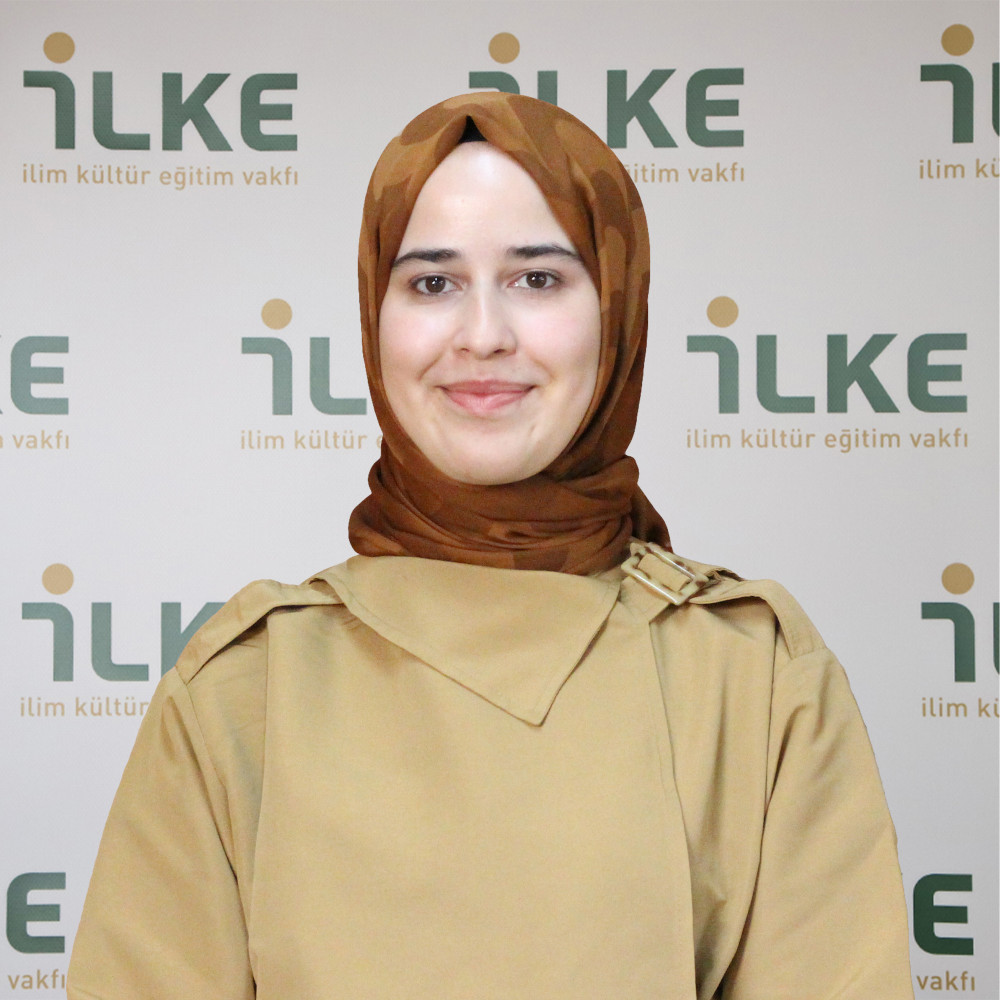 Selvanur Demircan
Selvanur Demircan